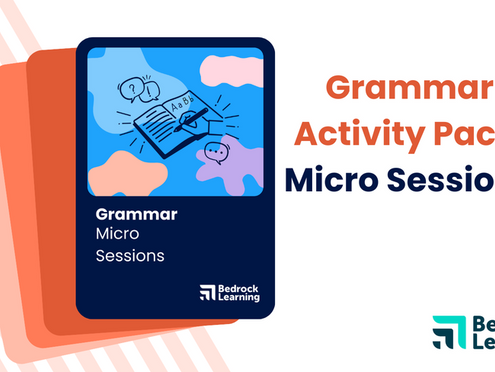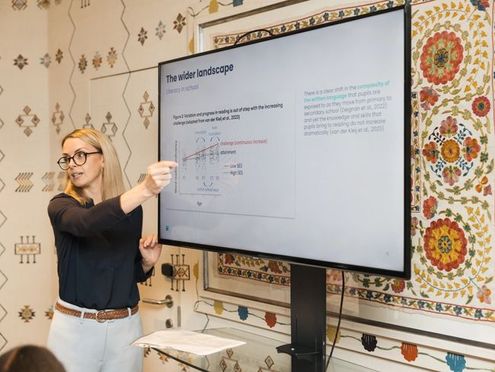As a Teaching & Learning lead for Bedrock, my remit is simple: to support every school with realising the platform’s transformative potential.
Alas, unless you’ve worked in a school, I don’t think you can ever quite comprehend how unpredictable and hectic it is. Thrilling as this can be, this everyday reality can really impede the most vital of daily activities, however simple they are.
However, that little green smiley that appears on the learner dashboard and in your inbox isn’t just a sign that learners are doing what you ask them (important as that may be). It’s a sign that your students are enriching their academic vocabulary, moving beyond simple definitions and into a deep, meaningful understanding of complex concepts at scale. It’s a sign that they are engaging in a deeply personal - and therefore transformational - literacy journey. Strong implementation must answer two questions:
- What do we want learners to do?
- How are we consistently going to make them accountable for this?
How can we build a culture of engagement around academic language?
Getting the big decisions right at school level
Bedrock is, ultimately, only as powerful as the implementation plan that underpins it. Before anything else, we feels it’s important to demonstrate why Bedrock matters, so you may find these videos useful:
- Why does Bedrock matter for parents?
- Why does Bedrock matter for learners?
- Why does Bedrock matter for teachers?
Although some schools use Bedrock for pupils to complete as part of their home learning, it’s useful to consider more structural access to the platform, such as:
- Timetabled lessons
- Part of lessons (sometimes linked with library lessons)
- Small size lesson withdrawal
In the learner dashboard, you’ll see our points indicator; we recommend 20 points per week.
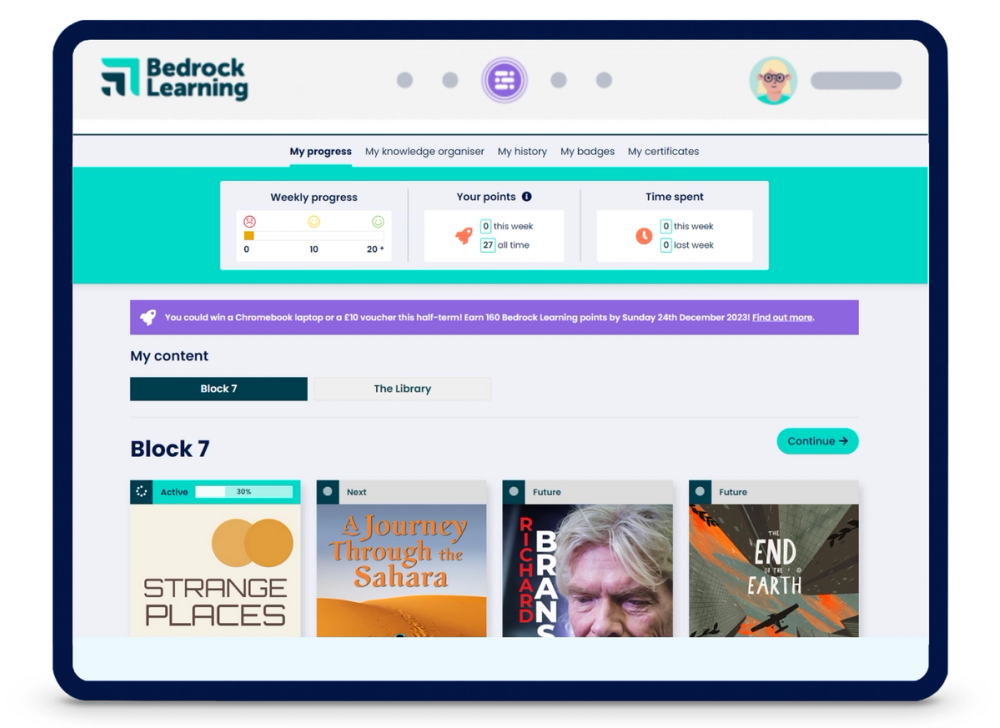
Learners earn points for organic engagement with the platform, and it takes around 40 minutes to gain those 20 points:
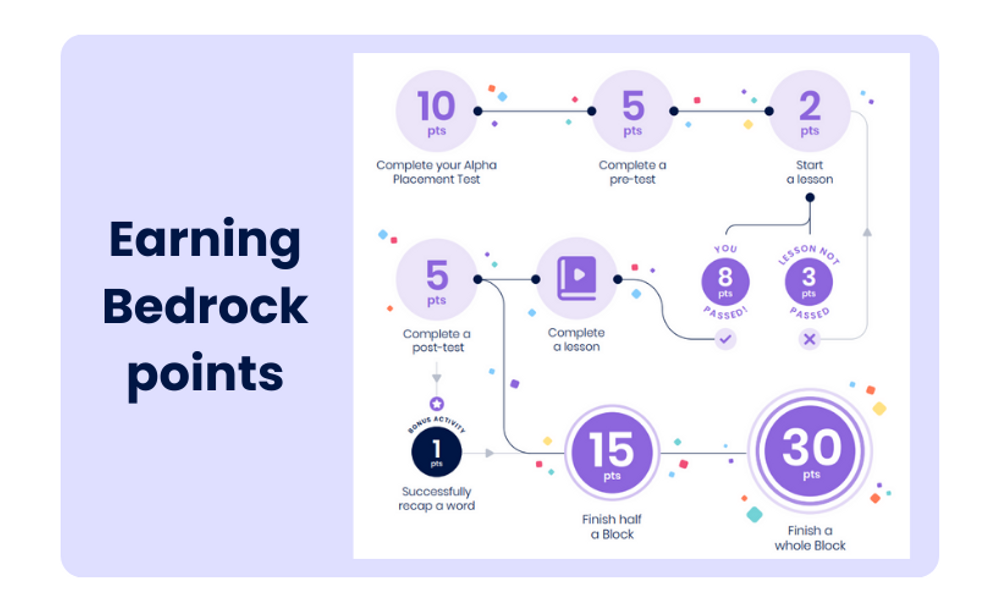
Depending on your context, you could ask learners to complete 20 minutes in lessons and then the rest at home each week, for example. For those that may not have access to IT equipment at home, you can also offer access to computers in school before, during and after school as well. Obviously, you can also track lessons completed or time spent overall as well.
My colleague has recently written elsewhere about motivation, and a key aspect of this is rewarding the behaviours of learners that you’d like to see.
The importance of lead teachers engaging with school level reports
One thing we often say to colleagues in schools is that engagement with Bedrock is not just of benefit to the learner, but about the data driven insights that colleagues get when this happens: real-time insights at individual, class, year and whole-school level about tier 2 knowledge gaps. So how do you make it happen? If you are a lead teacher in the platform, you will have access to the school reports tab. Here, the class engagement report will allow you to easily see where there may be issues with classes not completing, allowing a much more scalable intervention to address them collectively.
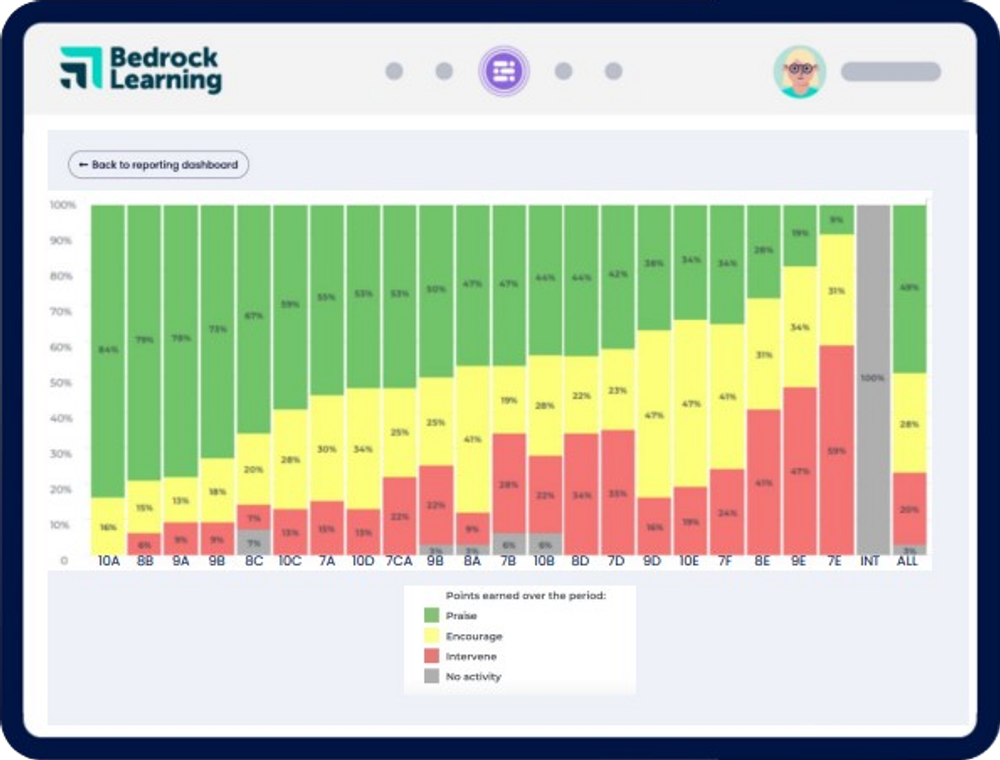
Class engagement report
You can also utilise the report for leaderboards and competitions between classes; these can be an excellent basis for.
You can also use the main dashboard to access the knowledge trends report, giving you insights by block about the words that learners already knew/don’t yet know/have just learned. These are very useful to share across the school with different subjects, giving all teachers meaningful tier 2 insights to support their teaching.
We also often recommend that schools involve pastoral leads with Bedrock, so that they can use the leaderboards to celebrate and praise fantastic engagement with the platform. This also gives them access to knowledge trends to bring use in assemblies as well.
Teacher engagement: responsive teaching with less planning
The teacher dashboard gives you insights into all kinds of powerful information:
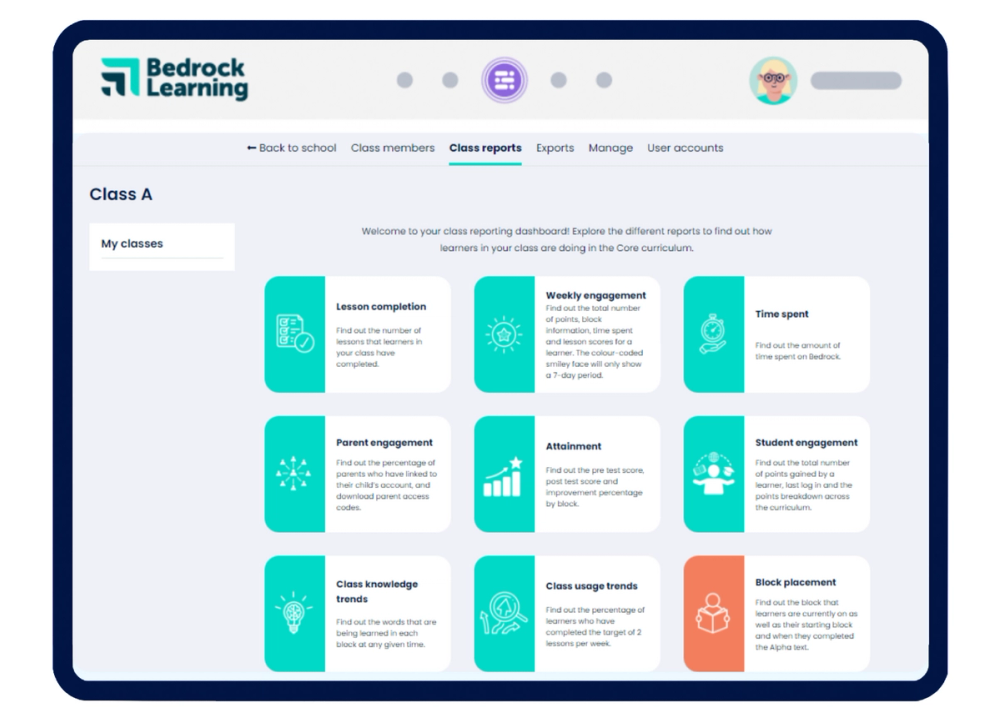
Class reporting dashboard
I would especially recommend the Weekly engagement and Time spent reports here. When you pull these up, you can filter dates down to the individual day (meaning you can reward and praise there and then). You’re also able to use the Block placement report to see the blocks that your learners are in, and then use the Class knowledge trends report to see the words that your learners as a collective may need additional support with. Again, it’s all about being given real insights into what your learners need. The Holistic assessment results also give you granular detail - on both individual and class level - about the grammatical elements of writing that your learners are finding difficult.
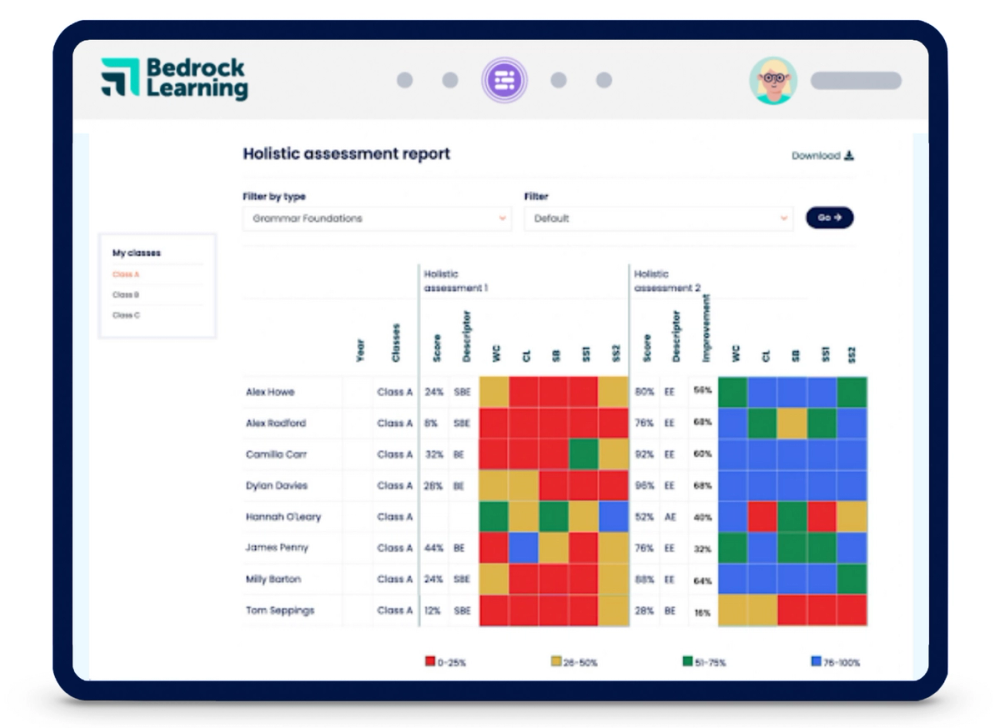
Holistic assessment
The most important point to make here is that getting hold of this information is quick and easy, making your planning much more straightforward in terms of meaningful, responsive teaching.
Lead Teachers: understanding impact
Impact can be a tricky issue for some in this space: not for Bedrock. The school reports dashboard gives you all kinds of progress reports. The attainment report has a ‘report options’ dropdown, which also gives you an excellent sense of vocabulary progression of classes and micro-populations within the school too.
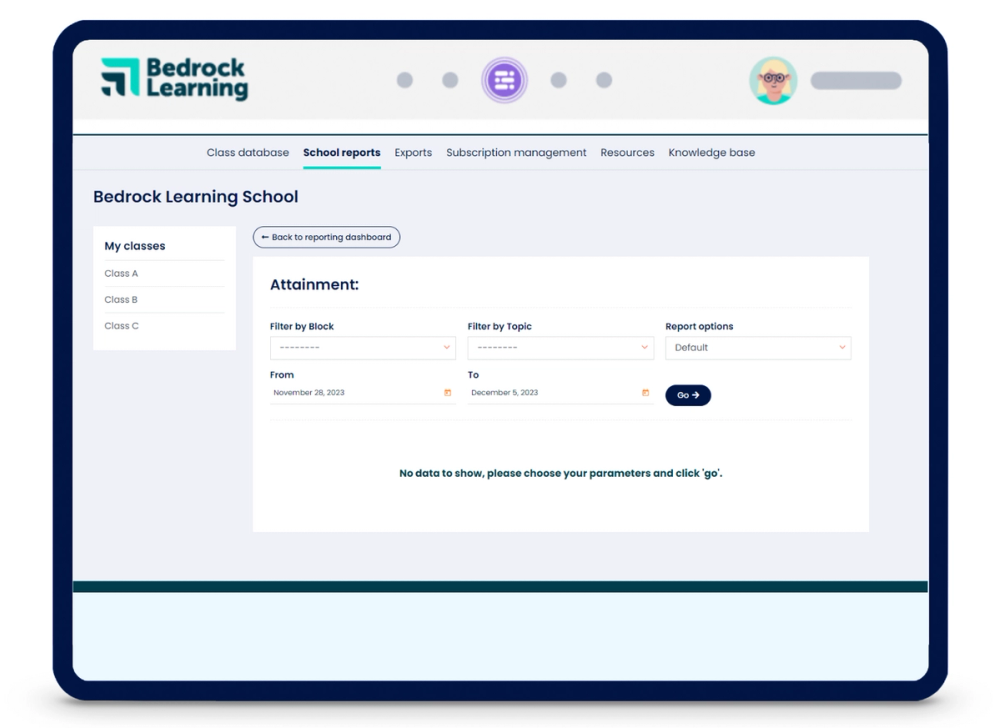
Attainment report
Above all else, the data here gives you a really useful indicator about where in the school Bedrock is making the biggest inroads. If you email support@bedrocklearning.org, we can also provide you with a useful impact report which summarises much of this information into one concise document as well.
If you’d like to understand the impact of Bedrock on other metrics such as reading age or GCSE outcomes, though, we can also support you with this. If you’d like us to help you with this, please email education@bedrocklearning.org and we can help you with this.
One thing I can say without doubt is that when we triangulate consistent Bedrock usage against various metrics, such as reading age increases and exam outcomes, we see consistent impact.



